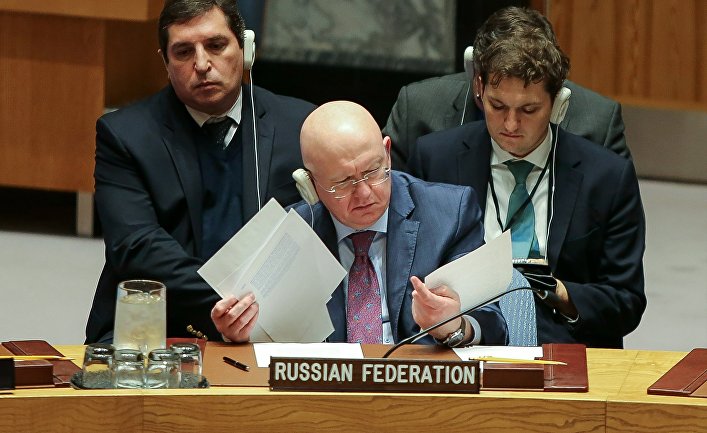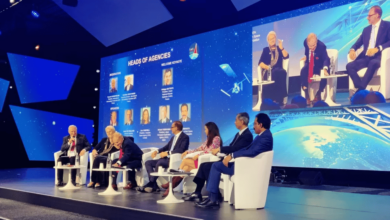
Russia and China refuse “humanitarian aid” to Syrian militants
US, WASHINGTON (ORDO NEWS) — Russia and China refused to support the mechanism of so-called “humanitarian aid” of Syria that existed since 2014 through the territory of Turkey, which has actually turned into a tool for supplying militants and anti-government forces long ago, and vetoed it twice during the discussion in the UN Security Council.
At the same time, the Russian Foreign Minister, in a telephone conversation with his German counterpart, called for the lifting of illegal economic sanctions imposed on Syria by the United States and the European Union and also called for the provision of humanitarian assistance to the entire Syrian population, without political separation, as well as without political discrimination.
Last Tuesday, the UN Security Council approved a draft German-Belgian resolution to extend the mechanism for the provision of “international humanitarian assistance” to Syria through the border crossings of Bab Es Salaam and Bab Al-Javi on the Syrian-Turkish border for another year, but the resolution was blocked by Russian representatives and China.
This time, Russia and China categorically did not approve of the mechanism for delivering international aid to Syria through the so-called “humanitarian corridors” in Turkey that has been operating up to now.
The UN Security Council resolution on the delivery of humanitarian aid to the territory of the Syrian Arab Republic through transboundary corridors, adopted in 2014, expired on July 10, and the Security Council met in a new meeting to re-discuss and vote.
Russia, which demanded that the number of corridors for the transportation of humanitarian goods be reduced, did not accept the draft resolution of Germany and Belgium to extend the resolution on the same terms and vetoed it along with China. The help of Western states and cargoes that invariably fell into the hands of the armed opposition and terrorist groups, but not to the civilian population, starting in 2014, went mainly through border posts on Turkish territory, Gilvegezu and Ondjupinar.
As some observers and experts wrote, during this period, from 2014 to the present, the supply of humanitarian supplies has become a well-established scheme for supplying armed extremists, militants of the armed Syrian opposition fighting with government forces, and terrorists with weapons, food and medicine. Moreover, according to experts, the share of weapons in goods transported through Turkish territory has steadily increased. But, and whether it was otherwise, this dubious scheme of “humanitarian aid”, implemented by resolution 2504 of January 11 (2014), on July 10 of this year was supposed to cease to exist.
Russia’s Permanent Representative to the UN Vasily Nebenzya said that Russia proposes to the UN Security Council such a resolution that indicates only one checkpoint for the delivery of humanitarian supplies to Syrian territory, and which emphasizes that all goods must now be transported through Turkish territory to Syria only by land transport .
At the same time, according to a statement issued by the Russian Ministry of Foreign Affairs, Russian Foreign Minister Sergei Lavrov, in a telephone conversation with German counterpart Heiko Maas, stressed the need to deliver humanitarian supplies to Syrian territory “without any preconditions,” as well as all civilians throughout Syrian territory who needs help, not just “selective groups” and without “politicizing the problem” and discrimination.
The Russian Foreign Minister also discussed with the German Foreign Minister a new scheme for the delivery of goods that should be transported to Syrian territory through only one corridor. Lavrov also emphasized the need to deliver goods in full accordance with the indicated areas and destination, strict coordination of all actions with official Damascus, as well as the need to comply with all human rights requirements.
It must be added that, according to the official position of Russia, economic sanctions imposed against the Syrian Arab Republic and its government by the United States and the European Union are harmful primarily to peaceful Syrian citizens. Moreover, the UN Secretary General also spoke about the need to ease sanctions against Syria and all unilateral restrictions, if not their complete lifting in the context of a coronavirus pandemic. However, as you know, these circumstances did not in any way affect the economic sanctions against Syria, which remain at the moment, despite the pandemic, in full and unchanged form.
—
Online:
Contact us: [email protected]
Our Standards, Terms of Use: Standard Terms And Conditions.









